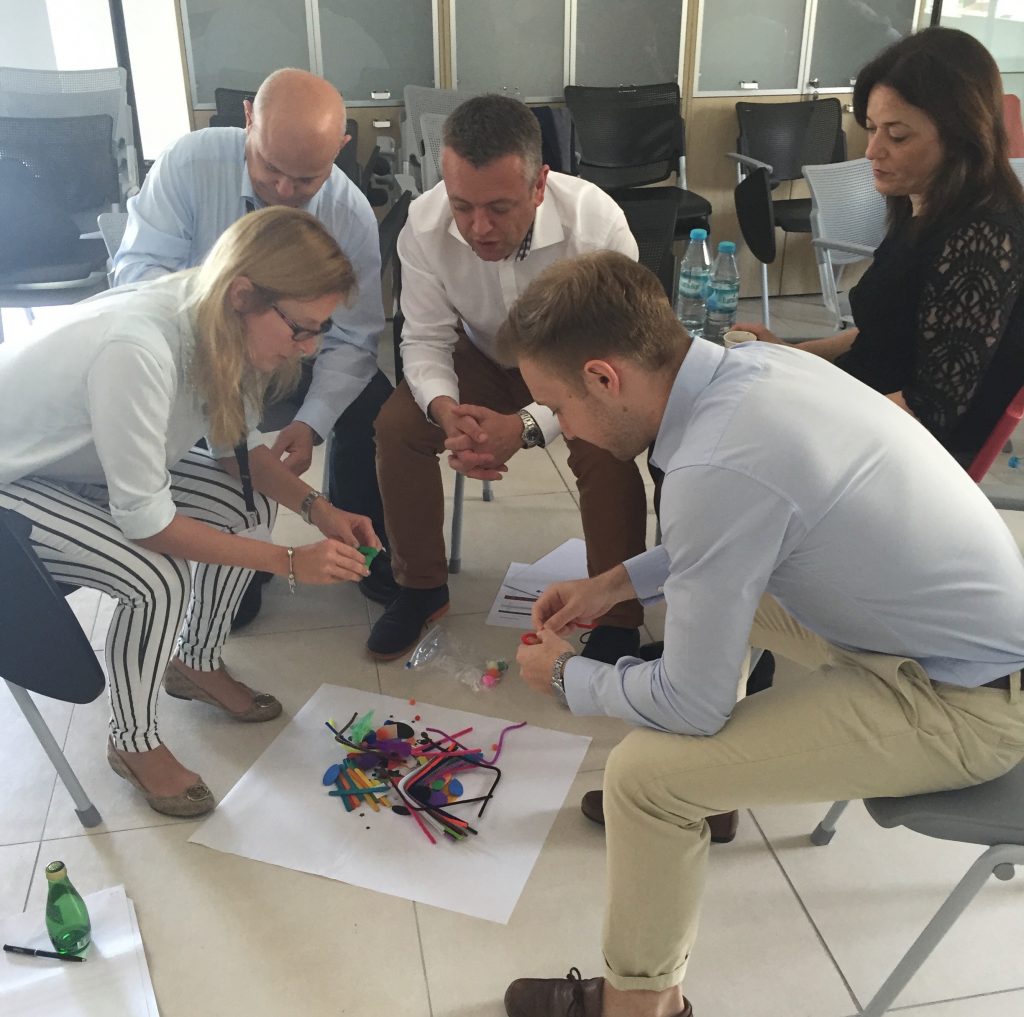Meeting Tomas Hancil
Meeting Tomas Hancil...
.jpg?width=400&name=Rise-Beyond-September-2017-049%20(1).jpg) What do you really enjoy about your work that you'd like to share with others?
What do you really enjoy about your work that you'd like to share with others?
Probably the most enjoyable things happen rarely - but are well worth it. I am talking about those moments when you coach someone and touch them deep enough that they are able to change their past behaviours, and they are able to enjoy the growth and new options that are created by the change.
So the most enjoyable thing is for me the opportunity to have conversations that lead to growth - both mine and my clients. That feels good, but on a global scale, I think this is the most important thing to do in our increasingly complex world. Our human society advanced technologically too quickly for our psychological makeup. We are struggling (and losing the battle most of the time) to navigate the current complexities with our current psychological makeup. Psychological growth that will include our ability to take in complexity, get rid of our unconscious biases and reactive tendencies is the only hope for survival.
So in a way, I enjoy what I am doing because I see it as a battle for the survival of humans - and while my contribution might be very small, I am really convinced I am working on the exact spot I should be working. Doing this work gives meaning to my life.
What has been your biggest learning experience in the past few years that have shaped the way you approach your work?
Learning can have several meanings. And perhaps the most important one (though more than a decade ago) was that intellectual ability to learn is not sufficient if not matched by personal learning. And I am talking about more than just a difference between the rational and emotional. Even emotions are constructed by our system which creates meaning. Changing that is the most difficult thing. That is what I call personal growth.
At this moment we have multiple streams of thought that are very clearly showing that adults can grow psychologically over their entire life span and that it makes perfect sense to create situations that help them grow and shift from one way of seeing things to the next. The way we make sense from our experience is determined by the form of mind we are currently using. If we are able to recognise that, we would be in a much better position to solve many problems.
Most of our troubles in organisations and communities are actually caused by a mismatch between the level of complexity required by a certain position and the capacity for complexity by the people in those positions. The question that I am trying to answer then is how can we help enough people to recognise the need to personal growth and support them in their effort to be able to match the complexity of the world with the complexity of their thinking.
What do you wish you had known earlier?
I wish I had more courage to call it out when personal development is seen as some kind of skills training or (slightly better but still woefully inadequate) as emotional support for past wounds. The real growth comes only when we start to challenge our old ways of meaning-making, when we are able to see what used to be part of our unconscious operation of the mind and its processing of reality. We grow when we are challenged in how we understand ourselves when we are confronted with perspectives that we did not even consider as possible, when we start recognising that our past ways of decision making were partial and inadequate for the complexity of the world we are facing today.
I have wasted a lot of effort and time to teach people skills and techniques so that they were better at their jobs. And I wish I understood earlier why I was sometimes successful, but often failed. The problem is not in skills or our inability to use emotions. It runs deeper. What often needs to change is the way we make sense from the situation we are in. and ow we make sense from what is happening. I wish I knew earlier that personal change, maturity and deep reflexivity is what makes the difference; it would help me personally in my own journey and would make me a better coach and consultant for others as well.
What do you find valuable about this RISE community? How can we continue to improve the way we are?
What is potentially most valuable about the RISE community is its ability to grow together. The exciting thing for me is that all of us have already started a journey of personal development.
Now the question is whether we will be able to sustain the sufficient level of critical inquiry into our practice to become a real developmental community. I think that the attractiveness of RISE for many consultants (and clients) is exactly the fact that we have made substantial progress on such a journey. They appreciate the more advanced understanding of what is going on in an organisation, between people and in people themselves. But most of all they appreciate who we are as people, how we are able to handle disagreement, be reflective in tense situations, not react when more thinking is needed. The way we “show up” is the ultimate “competitive advantage” that we have at this moment.
They may not fully appreciate that the only way to get to such place as people and community is the practice where we are able to reveal what are our weaknesses in order to be able to help each other to grow in those areas. A community where we struggle with the ideas of others and with our own shadows and idiosyncrasies. That is our work: it is rather uncomfortable and often very confusing as we all have to question what initially seems to us all too logical and clear.
There are signs that make me hopeful as well as signs that make me worried. For example, we are putting some structures in place that will support growing together. At the same time, we are too busy to use those structures to their full potential. It seems that we are not as open as we could be about our practice and possible improvements to it.
What is at this moment crucial to get right is the right balance between two things: growth in numbers (of consultants, clients and revenue) and critical practice of self-development. When a community grows quickly, there is some degree of insecurity about whether I fit or not. That insecurity is causing everybody to defend their way of thinking and their practice rather than question what each of us does in a communal way. The question is: Are we able to keep this natural phenomenon in check and maintain the necessary level of critical inquiry despite psychological discomfort? Will be our need for psychological safety keep us from learning? And will the need for quick growth in numbers be given higher priority than critical inquiry within the community?
My wish for the RISE community is to find a way to express mutual care for each other, create an inclusive environment and at the same time be critical with each other. If we are not able to do that, the attractiveness of the community will be lost, for consultants as well as for the clients.
.png?width=120&height=120&name=RISE%20Logo%20(7).png)
%20(1).png?width=133&height=133&name=Compass%20Coasters%20(87%20x%2087%20cm)%20(1).png)
.png)

